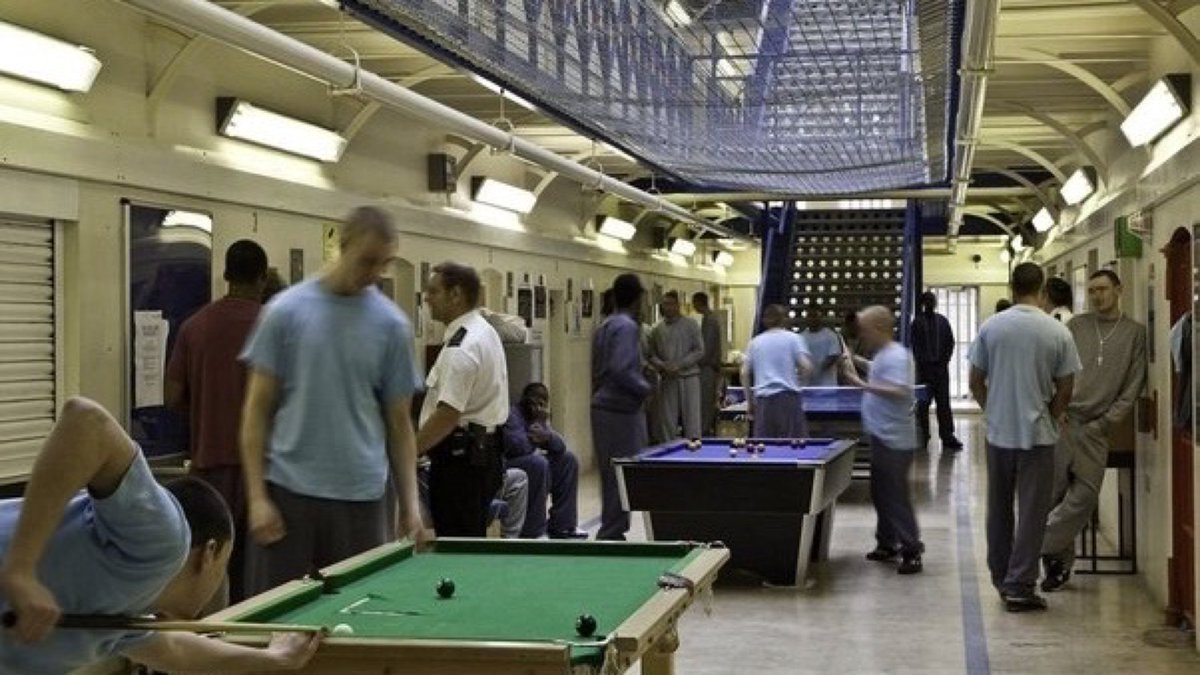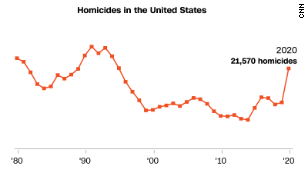
Medellin, Colombia has 100s of powerful gangs, but still went from one of the most violent cities in the world to homicide rates far lower than that of St Louis, Baltimore or Detroit. What happened?
The story here: great success, but at a terrible & hidden price.
A 🧵
The story here: great success, but at a terrible & hidden price.
A 🧵

Americans think of shootings as an individual problem: greed, passions, feuds, and hot reactive thinking drive killers.
That’s true to an extent.
cnn.com/2022/04/23/opi…
That’s true to an extent.
cnn.com/2022/04/23/opi…
But this overlooks something important: that, in an awful lot of cities, crime is organized. That makes some killings calculated and strategic, not simply crimes of passion or reflex.
A gang leader I met in Chicago once told me how he became a killer.
A gang leader I met in Chicago once told me how he became a killer.
Someone robbed his group of their drugs. He looked weak. He knew he had to show he was resolved. Construct a reputation to protect him and his group. So he killed and killed until no one robed him anymore. That wasn't passion. It was cold, cruel, and strategic.
Here's another thing: criminal groups, being strategic, prefer peace. No one sells drugs in a gang war. So groups have incentives to make peace.
Take Medellin, where every low and middle income neighborhood has a street gang known as a "combo". There are a lot of them: 

One leader told us about a brawl that broke out over a pool game in prison. Men got shot. The violence and revenge killings started to spread to the street. Every gang in the city lined up between one side or the other to prepare for war. But that billiards war never happened. 

The gangs didn't want a war. And the big crime bosses definitely didn't want one. They'd lose the most. From prison they orchestrated sanctions, mediation, & commitment to peaceful deals. They walked street gangs back from war. They call their peacemaking confederation La Oficina 

La Oficina is a little like the UN Security Council. Dominated by a few powerful bosses. Selective in their enforcement of the peace. Only partly effective. Highly unequal. But they do help keep the peace a little. They call it El Pacto del Fusil—the pact of the machine gun. 

I talk a lot about this in my book, Why We Fight. Like gangs, nations, political factions and ethnic groups don't want to go to war. When they do fight, it's for similar reasons. And the solutions resemble one another too.
But that's not this thread.
amzn.to/3FyBu2u
But that's not this thread.
amzn.to/3FyBu2u
This thread is about the terrible trade-off that governments make for peace. Because peace—meaning an absence of prolonged battling—isn't always just or pleasant. It sometimes means unpalatable deals.
Take a look at this figure of homicides in Medellin every month of 2019. They started to spike as the factions began to skirmish and start a war. La Oficina was fracturing and needed help finding a deal.
What happened at the red line?
What happened at the red line?

That's the week the govt coincidentally shifted each criminal leader from their prison. Scattered about, they suddenly found themselves in the same holding cell for a few days. Coincidentally, a trusted criminal mediator was arrested & placed in the same cell. Killings plummeted.
Informally and formally, states all over the world try to help gangs keep the peace.
President Bukele in El Salvador (and his predecessors) are famous for organizing secret ceasefires and pacts.
jstor.org/stable/43920009
President Bukele in El Salvador (and his predecessors) are famous for organizing secret ceasefires and pacts.
jstor.org/stable/43920009
Mexico’s single party state once did the same with cartels. Why wage a costly fight when you can compromise & share spoils?
But democracy makes this hard. It’s unpopular (plus it’s harder to make deals with rotating politicians.)
amzn.to/3FBIBXJ
But democracy makes this hard. It’s unpopular (plus it’s harder to make deals with rotating politicians.)
amzn.to/3FBIBXJ
In Brazil, the state inadvertently helps criminals keep the peace by ceding prison control to gangs. This can help criminal heads strike truces, work out differences, and even fuse their organizations. These (imperfect) peacemakers are we know as the PCC. and the Red Command.
US cities do this too. They call it focused deterrence. City authorities meet with gang leaders & pledge swift, certain, and severe punishments for future homicides.
Comparing cities that do this to those that don’t suggests the threats have some effect.
onlinelibrary.wiley.com/doi/full/10.10…
Comparing cities that do this to those that don’t suggests the threats have some effect.
onlinelibrary.wiley.com/doi/full/10.10…
Violence interrupters also mediate between rivals. Usually they leap between feuding individuals, but some also try to mediate between leaders and arrange pasts. Comparing neighborhoods suggests this too works reasonably well.
annualreviews.org/doi/10.1146/an…
annualreviews.org/doi/10.1146/an…
So where's the terrible tradeoff? Sounds great so far!
The trouble is that helping gangs make peace can make them more profitable and stronger. Especially the criminal syndicates who provide this valuable conflict management service to the smaller gangs and groups.
The trouble is that helping gangs make peace can make them more profitable and stronger. Especially the criminal syndicates who provide this valuable conflict management service to the smaller gangs and groups.
People don’t buy as many drugs or pay extortion in the middle of a gang war. So peace is an opportunity to sell more dope, extract more protection money, and gain legitimacy from local people.
Also, the same syndicates that help keep peace can also coordinate to form cartels—in the economic sense of the term—coordinating everyone to sell as monopolistic prices. Certainly this is what’s happened in Medellín. 

So mayors face a tough choice.
Voters hate homicides. Why disturb any Pacto del Fusil through crackdowns on the gangs? They’d just find their cities engulfed in turf wars so bloody and destructive that they undermine their election prospects next term.
Voters hate homicides. Why disturb any Pacto del Fusil through crackdowns on the gangs? They’d just find their cities engulfed in turf wars so bloody and destructive that they undermine their election prospects next term.
Yet leaving organized criminals be makes them powerful.
Here, for example, is a heat map for Medellin, showing who (on average) is more likely to help you resolve a dispute with your neighbor, address a theft, or protect your street: the state (blue) or the local gang (red).
Here, for example, is a heat map for Medellin, showing who (on average) is more likely to help you resolve a dispute with your neighbor, address a theft, or protect your street: the state (blue) or the local gang (red).

Here’s how gang (combo) loyalty and legitimacy correlates with this criminal governance. In many neighborhoods, the gang has about as much trust and respectability as the state. 

This is a high price to pay for lower violence. It might be the right price to pay. Every city has to make their own choice.
But few mayors or voters are even aware of it.
But few mayors or voters are even aware of it.
Most police & mayors have information on one thing: crime and homicides. They get daily reports, down to the level of street corners. Mayors can hold their staff o& police accountable for improvemenrt. If they don’t, newspapers report them every week. Voters pay attention. 

But they have no way of knowing whether criminal groups are growing stronger or weaker. Few collect data on gang strength or drug profits. Fewer track when gangs provide local security, or ask citizens whether they find the gangs as legitimate as the state.
I want to get to how we can collect these data, but first here's a polity note with more detail, put out with support from @poverty_action and @FCDOREDGCSD and the SOC research programme at U Birmingham with @hamarquette
birmingham.ac.uk/documents/coll…
birmingham.ac.uk/documents/coll…
This is work with @SantiagoTobon, @BigBigBLessing, @gusduncan & @JuanPabloMesaM.
Need help? We and @poverty_action are working with more and more cities to do this. Call us.
Here's where we give tips on how to do this in other cities. CAREFULLY.
birmingham.ac.uk/documents/coll…
Need help? We and @poverty_action are working with more and more cities to do this. Call us.
Here's where we give tips on how to do this in other cities. CAREFULLY.
birmingham.ac.uk/documents/coll…
Now for the traveling salesmen pitch:
For more on how to counter violent gangs, ethnic groups, political factions, nations, and Putins, do check out my new book.
@FT, @WSJBooks, @latimes, @amazonbooks and others all recommend it as a best new book
amzn.to/3FyBu2u
For more on how to counter violent gangs, ethnic groups, political factions, nations, and Putins, do check out my new book.
@FT, @WSJBooks, @latimes, @amazonbooks and others all recommend it as a best new book
amzn.to/3FyBu2u
Check out the other working papers in this series
birmingham.ac.uk/schools/govern…
birmingham.ac.uk/schools/govern…
And for more posts like this, follow me on Twitter or sign up to receive blog posts by email.
(Yes, I still kick it old school in the blogosphere.)
chrisblattman.com/blog/
(Yes, I still kick it old school in the blogosphere.)
chrisblattman.com/blog/
• • •
Missing some Tweet in this thread? You can try to
force a refresh





